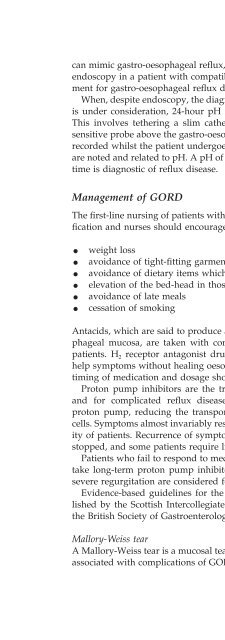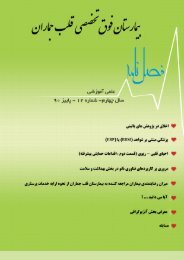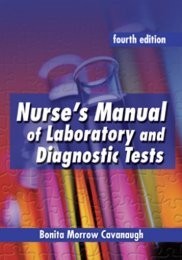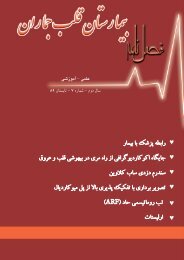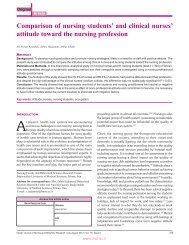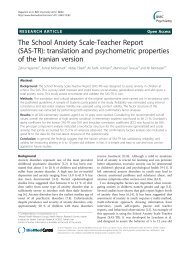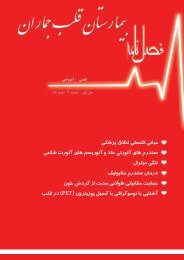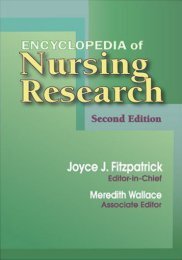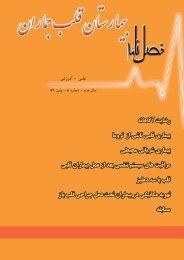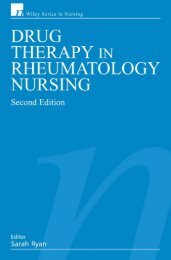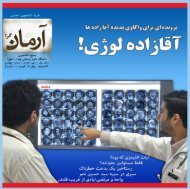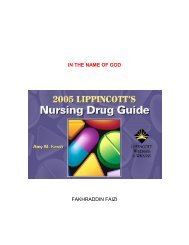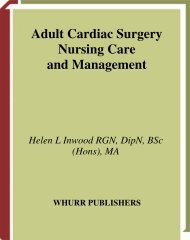Gastrointestinal Nursing.pdf
Gastrointestinal Nursing.pdf
Gastrointestinal Nursing.pdf
You also want an ePaper? Increase the reach of your titles
YUMPU automatically turns print PDFs into web optimized ePapers that Google loves.
The Oesophagus 31can mimic gastro-oesophageal reflux, and to identify complications. A normalendoscopy in a patient with compatible symptoms should not preclude treatmentfor gastro-oesophageal reflux disease.When, despite endoscopy, the diagnosis is unclear or if surgical interventionis under consideration, 24-hour pH monitoring is indicated (see Chapter 9).This involves tethering a slim catheter with a terminal radiotelemetry pHsensitiveprobe above the gastro-oesophageal junction. The intraluminal pH isrecorded whilst the patient undergoes normal activities, and episodes of painare noted and related to pH. A pH of less than 4 for more than 4% of the studytime is diagnostic of reflux disease.Management of GORDThe first-line nursing of patients with GORD should relate to behaviour modificationand nurses should encourage the following recommendations:• weight loss• avoidance of tight-fitting garments• avoidance of dietary items which the patient finds worsens symptoms• elevation of the bed-head in those who experience nocturnal symptoms• avoidance of late meals• cessation of smokingAntacids, which are said to produce a protective mucosal ‘raft’ over the oesophagealmucosa, are taken with considerable symptomatic benefit by mostpatients. H 2 receptor antagonist drugs, which reduce gastric acid secretion,help symptoms without healing oesophagitis. They are well tolerated and thetiming of medication and dosage should be tailored to individual need.Proton pump inhibitors are the treatment of choice for severe symptomsand for complicated reflux disease. These drugs irreversibly inhibit theproton pump, reducing the transport of hydrogen (H + ) ions out of parietalcells. Symptoms almost invariably resolve and oesophagitis heals in the majorityof patients. Recurrence of symptoms is almost inevitable when therapy isstopped, and some patients require lifelong treatment.Patients who fail to respond to medical therapy, those who are unwilling totake long-term proton pump inhibitors and those whose major symptom issevere regurgitation are considered for anti-reflux surgery.Evidence-based guidelines for the management of GORD have been publishedby the Scottish Intercollegiate Guidelines Network (SIGN) (2003) andthe British Society of Gastroenterology (BSG) (2002).Mallory-Weiss tearA Mallory-Weiss tear is a mucosal tear at the gastro-oesophageal junction. It isassociated with complications of GORD, prolonged forceful vomiting, alcohol


